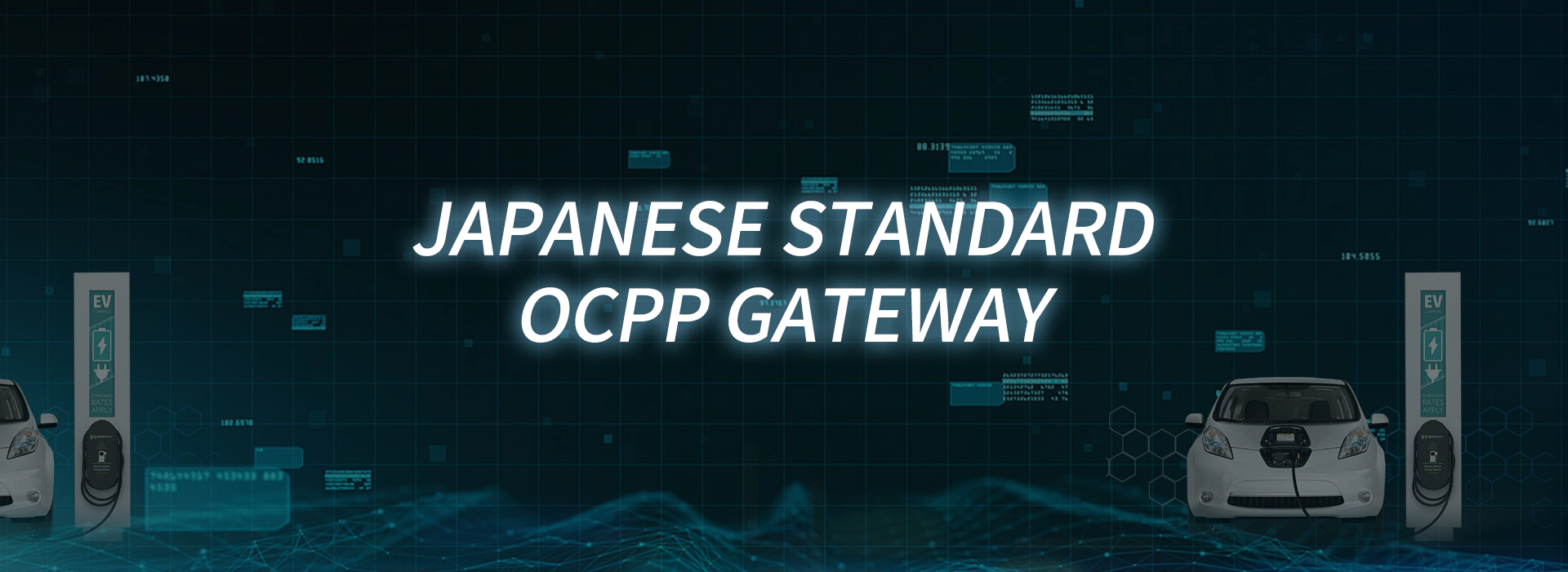
Japanese standard OCPP gateway
Exporting charging stations has become a trend, especially with greater opportunities in overseas markets. The Japanese market, as a significant target, has attracted the attention of many charging station companies. By adopting OCPP protocol 4G gateways, companies can ensure compatibility with local Japanese standards and support the rapid expansion of EV infrastructure in the country. This approach not only facilitates market entry but also helps companies secure a favorable position in global competition.

▶ Importance of OCPP Gateways in Charging Station Exports
Interoperability and Compatibility: OCPP is a global open communication standard that enables seamless communication between charging stations and central management systems (CSMS), regardless of the manufacturer. This prevents vendor lock-in and enhances market competitiveness.
Cost and Complexity Reduction: Using the OCPP protocol provides a unified communication standard, reducing integration time and IT workload, eliminating the need for proprietary interfaces for each manufacturer’s equipment. This simplifies the deployment and management of charging infrastructure.
Support for Smart Charging: OCPP protocol 4G gateways are fully certified for OCPP, supporting smart charging features such as load balancing and dynamic power adjustment, optimizing grid resource use and meeting user demands.
▶ Challenges and Solutions for Exporting to Japan
Due to Japan’s specific standards and high demand for EV infrastructure, the Japanese market presents unique challenges. The Japanese government plans to significantly increase the number of charging stations by 2030 to support the growing EV market.
Certification Requirements: Charging stations exported to Japan must comply with local standards, such as CHAdeMO, which is widely used in Japan. Some Chinese companies have obtained CHAdeMO certification, enabling successful entry into the Japanese market.
Infrastructure Development: The Japanese government has set an ambitious goal to expand to 300,000 charging stations by 2030. This expansion is supported by substantial government subsidies and initiatives to promote EV adoption.
▶ Advantages of Using OCPP Gateways
Flexibility in Hardware Choice: As an open protocol, OCPP allows operators to freely choose hardware, fostering market innovation and competition.
Enhanced User Experience: Ensuring seamless integration with platforms improves system stability and provides a smoother user experience, thereby increasing customer satisfaction.
In conclusion, to achieve carbon neutrality by 2050, the Japanese government has formulated a series of policies aimed at accelerating the improvement of charging infrastructure, including increasing the output power and quantity of charging stations. For charging station enterprises looking to expand overseas, this presents a tremendous opportunity. Shenzhen Huizhi Technology’s Japanese standard OCPP protocol gateway resolves hardware concerns for these enterprises, greatly enhancing their development prospects.